Why does everyone want to move away from Barcelona?
The highest percentage of inhabitants wishing to move out of Barcelona was recorded. Some time ago this would have been unthinkable.
But the impact of COVID-19, coupled with the new possibilities of online work and education, seem to be causing a rethink of the modus vivendi of some of the city's inhabitants. At Monapart we have not stopped selling beautiful homes despite this new normality, and some cases have been precisely those of families who have decided to leave the city for a quieter environment... Will Barcelona empty out in 2021?
One of the new trends in the real estate sector, due to the effects of the pandemic, is the new demand in areas with reduced population density. Proof of this is that, according to the Association of Land Registrars, sales of single-family homes accounted for more than 20% of total transactions in the third quarter of 2020The number of new entrants to the market is at an all-time high.
Moving away from Barcelona
It all starts with the Municipal Services SurveyThe results show that almost 30% of the Barcelonans consulted want to moving away from Barcelona. OK, maybe the "everyone" in the title is a bit of an exaggeration. In fact, there have always been people migrating out of the city. What is striking this time is that this record is twice as high as in 2017 (15.5%) and almost nine points higher than in 2019 (18.9%).
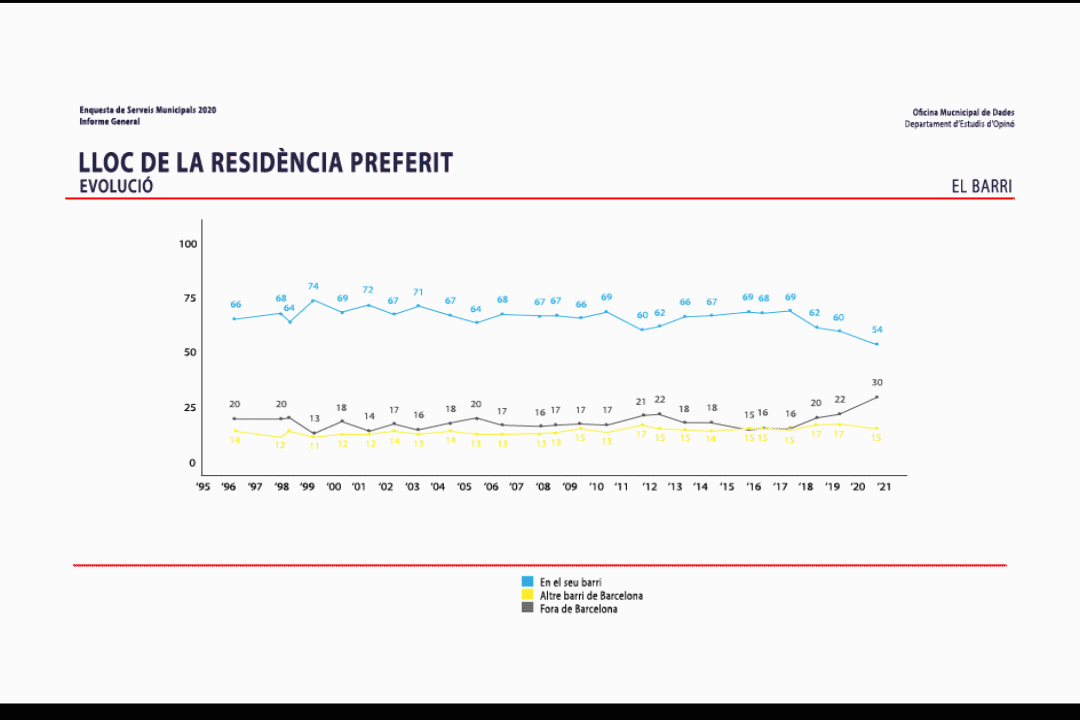
(A rather difficult graph to understand, the arrow points to the deserters).
It seems clear that this rise is driven by the global pandemic context, although it is not the main reason. Respondents to the Municipal Services Survey gave the following order of reasons:
- Crime, although it fell by 41% in the same period.
- Difficult access to housing, an old acquaintance.
- The impact of Covid-19.
- Rising unemployment.
- And the lack of cleanliness in the streets.
It is logical to think that those who want to move away from Barcelona dream of being able to live in a quieter, cleaner and safer place.
But... There is one detail.
Barcelona City Council also issued last February a report on migratory movements in COVID-19 times. The data he provides arise from the analysis of the changes in the census. What he concludes is quite interesting:
- Those who emigrate are the upper or upper-middle classes who have a larger, cooler, brighter and safer second home in the interior of the province of Barcelona.
- The profile of the Barcelona emigrant during the pandemic is not the classic one of an inhabitant who leaves the city, but someone who maintains very strong ties with it.
If we add to this the restrictions on inter-municipal mobility, the expansion of teleworking, distance learning, the boom in online shopping, moving away from Barcelona, to the coast or the mountains, seems the best option.
As we said, do not leave the city, but the ease of working and enjoying leisure activities at a distance encourages a very fluid use between the city and the small municipality of the second residence.
So, living in the suburbs: trend or obligation?
From the above, we can conclude that living in the suburbs is something that to some extent has always been there. What is happening now is that it is being triggered by the new reality of the pandemic and a certain comfort that the wealthier classes have in being able to do so.
In short: I'm going, but I'm not leaving.
It seems a natural choice for those who have the means to live better, to do so.
I can also:
- Teleworking.
- Maintain good communication with the city.
- Take advantage of the restrictions on leisure and entertainment and take some time off in the mountains.
- Do not make too much effort, as I have the resources available to make the change.
However, behind this explosive increase there has been a constant for some years: 15-18% of the population of the Catalan capital wants to move out of Barcelona. And this number seems to be increasing all the time... Why?
Here's a hint:

In a 2017 interviewJoan Oller Beltran, former president of the Barcelona Association of Estate Agents, said something with brutal honesty:
- Question: Do we have the right to live in Barcelona?
- Answer: The cities of attraction will go up a lot in price. Barcelona, Madrid and so on. On the other hand, in Cáceres, for example, a flat is cheaper.
- Question: So, the key is distance?
- Answer: Where everyone wants to live, prices will go up, that's logical. In Cáceres you will have a very nice flat and an unbeatable quality of life. But if you want Barcelona, you pay."
The problem comes when the laws of the free market regulate access to a fundamental good such as housing. Because what happens is the following: sIf you don't have money, the city may expel you.. There may be two reasons why this is happening:
1. The historical process of urbanisation in Spain.
From the middle of the last century to the present day, there has been an uninterrupted increase in the resident population in Spain. urban areas. If in 1950 the urban population was 65% of the total population, in 2018 it was 87%, an increase of 22%.
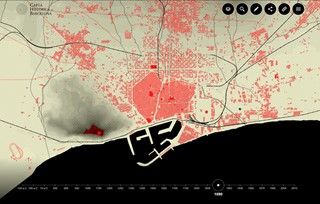
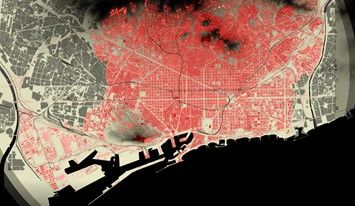
City growth from 1890 to the present day.
This unequal spatial distribution of the population leads to an unequal distribution of income, as there will be more business where more people are concentrated.
But urbanisation brings with it problems resulting from this saturation of space: rising housing prices and living costs, worsening living conditions, insecurity, etc.
2. If you can't afford it, you should go and live outside Barcelona.
Just what we were saying. But of course, Barcelona will not remain empty... What is produced is a readjustment of inhabitants: or the phenomenon known as gentrification.
The middle classes are impoverished and displaced by people of higher economic status. Meanwhile, the demand for real estate is becoming internationalised. It is no longer a local phenomenon, but involves other actors, such as investment funds, which make the process less and less spontaneous (and less ethical). Nothing happens in Barcelona that we haven't seen before in cities like New York, London or Paris.
But what is gentrification?
It is a process that generates the expulsion of residents from a given area of the city. Certain neighbourhoods, inhabited by the lower and lower-middle classes, tend to suffer deterioration of their buildings and surroundings. Gradually, these areas become of interest to new inhabitants and sectors, such as tourism, and consequently attract real estate investment.
New investments make the area more expensive. As a consequence, this leads to the expulsion of residents from their area of residence and their replacement by a new profile with greater purchasing power.
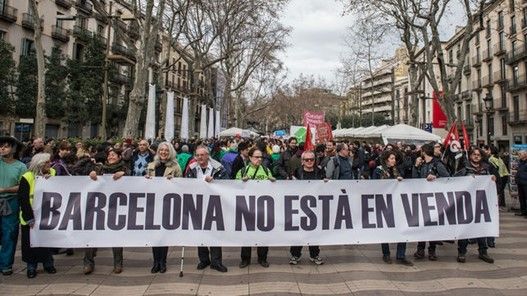
March against property speculation in Barcelona.
Thus, gentrification displaces and disintegrates the neighbour. originating at and replaces it with one of higher purchasing power.
- It changes the type of commerce and leisure that is born and develops.
- Modifies deteriorated buildings to be reconstructed or rehabilitated.
- It generates an increase in rents and house purchase prices.
In Barcelona, with the appearance of AirbnbIn the meantime, an even more damaging process, turification, was generated.
That is, a local population is replaced by a non-population, with the potential to create themed urban spaces, devoid of the minimum basic qualities for the stable resident.
Will Barcelona go that far?
For the time being, it does not seem so. The feeling of Catalan identity is deeply rooted in the people of Barcelona. There are strong historical, cultural and political reasons for this. They know very well how to resist and maintain the idiosyncrasies of their society.
An example of these are the areas of the city which, even in one of the world's largest capitals, retain their village essence.
The 3 Barcelona neighbourhoods that look like villages
These neighbourhoods resist. They maintain their charm and their identity. They are faithful to their customs and their neighbours, they are the kind of neighbourhoods where people have known each other all their lives and where you can still see ladies walking around in their dressing gowns to get bread. These Barcelona neighbourhoods that look like villages may well be an option for lowering the emigration rate.
1. Horta-Guinardó. Climbing the mountain, it is a place surrounded by historic mansions, lots of green space in a wide valley surrounded by hills and mountains.
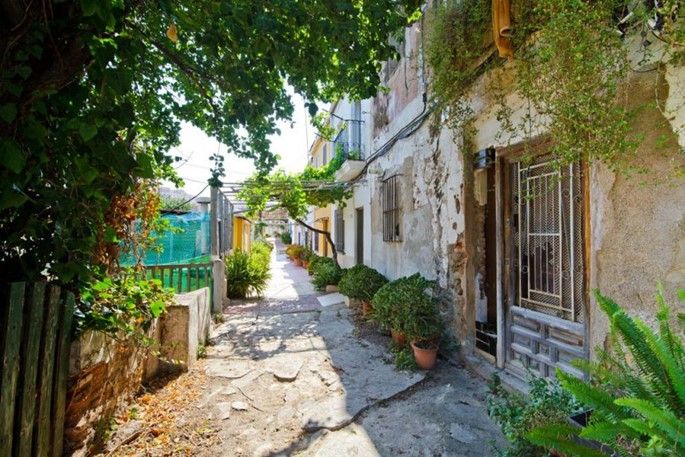
It is a quiet, residential district that still retains that village spirit. Every day you can enjoy the small squares and narrow streets that evoke its rural and independent past.
2. Sant Andreu. A neighbourhood as Catalan as the pa amb tomàquetwith a strong identity and a strong working class past. The typical residential neighbourhood of low houses and streets with orange trees, where everything seems to go by in slow motion.
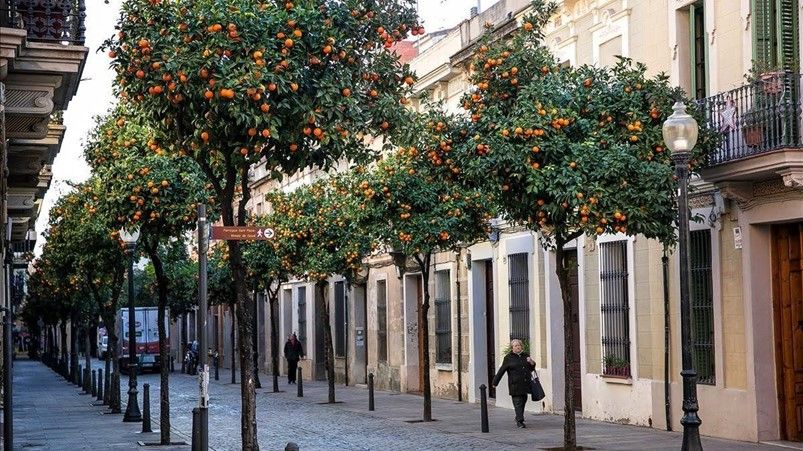
It is an ideal place to live with the family, a place with numerous safe parks for children. It is very active and has a strong commitment to art and culture, very attached to its roots.
3. Sarrià-Sant Gervasi. Located in the upper part of Barcelona, it is one of the greenest (and most expensive) districts in the city. Its pedestrianised streets, local shops and the people who live there are all worth mentioning. Away from tourists, it is a place with great schools and university campuses.
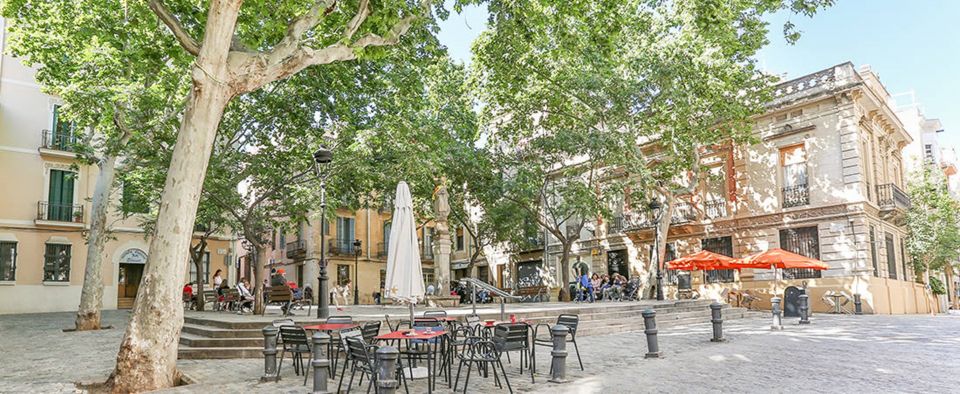
You see, Barcelona is a city rich in nuances and that's what makes it so unique: it offers the richness of a European capital but without sacrificing friendliness and comfort. Moving away from Barcelona doesn't have to be the only way out. This damn pandemic will pass and we will be able to enjoy the city. In the meantime, you can see some of our properties in Barcelona And who knows, maybe we'll get you to stick around...


